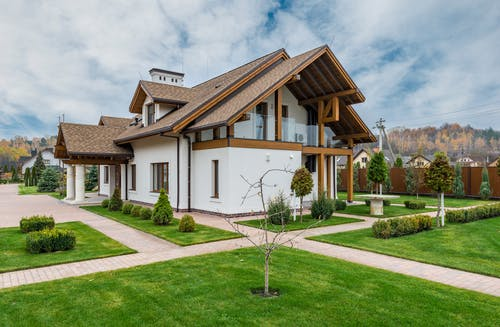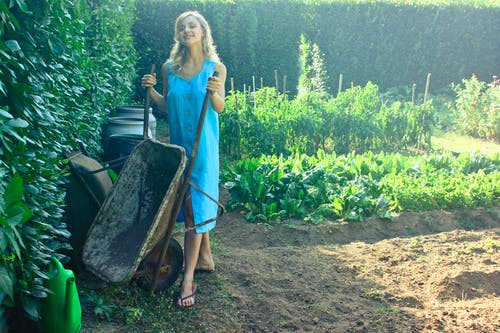 Owning a home receives considerable interest from almost every one of us. Homeownership is both a social and a commercial investment; your home provides shelter as a basic need and helps you see the value of your money. The demand for country housing has been rising in line with the dense population in the urban areas and the often disease outbreaks like COVID-19 whose preventative measures require you to keep distances to control the spread. The rural areas give you this generous space, the simple life, and can help you rest from the cities’ exhausting hustles.
Owning a home receives considerable interest from almost every one of us. Homeownership is both a social and a commercial investment; your home provides shelter as a basic need and helps you see the value of your money. The demand for country housing has been rising in line with the dense population in the urban areas and the often disease outbreaks like COVID-19 whose preventative measures require you to keep distances to control the spread. The rural areas give you this generous space, the simple life, and can help you rest from the cities’ exhausting hustles.
Accompanying Items And Terms
It’s good to have a full understanding of what you are to purchase. Be comfortable with the property value otherwise, it can be so disappointing to realize that you paid for a property more than it is worth. Furthermore, real estate attorneys at GreatVancouverHomes recommend that you understand the easement basics as they can limit your use of the newly acquired piece of land within which your home is located. There are also benefits of easements so make a wise decision on whether or not to buy a home with an easement. A good list is worth including in the purchase contract to eliminate any doubts. Your realtor who links you to the seller should be able to assist you with this upon your request.
A Rural Life
Moving to rural areas may appear easy, but it can also be a bit scary especially if you are a lover of urban life. It’s not a move taken so easily by many people and on the other hand, if you happen to make a foolish decision then your choice may come with all sorts of consequences and maybe you won’t be able to bear, in terms of finances or even mindset to help you settle. However, it can be a life-changing experience if you save upfront while relocating. Rural areas have plenty of wide space and some even have very large open areas where you can enjoy the fresh air and natural tranquility. You can also have access to a bigger garden if you had always wished to grow your own food.
More to that, you will also be able to keep the pets you may have always wanted to have and you were not able to keep in urban areas. Again, you may decide to keep animals you were restricted to keep in the city. You can rear cows or bees to enable you to generate some extra income. It is most likely that your immediate neighbor in the countryside might be miles away that you cannot even trace their residence. This can be a plus if you value privacy. Choosing a countryside home can further help you keep off traffic, heavy noises in cities and again help you live away from high crime areas.
Unlike in urban areas, where it is so easy to get information about a particular place online, it’s not as simple as you may think to acquire the knowledge of a particular location in the countryside. It’s good to have a good and reliable source of local knowledge. You can work with a realtor. Your realtor can help you understand the costs of buying a home and how they vary according to location and size. Annoyingly, you might pay much higher for a property in the countryside than you would have paid if you had consulted a realtor.
Although a realtor is paid by the seller to sell, they can give you as much information as you may require. With so many power uses, electricity should be a priority. You must check on the availability of power. You may also check on the climatic conditions to decide if you can use solar energy if the sun’s degrees can sustain your voltage needs. Many rural areas depend on water from streams, wells or even rain harvested water stored in tanks. You’re required to have a reliable source of water for your household’s uses so be sure you have a good water source.
Roads that lead you to your home are another thing to check on. Mostly in the countrysides unlike in the city where roads are maintained by municipal authorities, you may have to bear the costs of having the road leading to your potential home in the countryside maintained, especially if you don’t have neighbors with whom you share the road with. You may also exempt yourself from paying property rates in the city and save money. It has become a basic necessity for most village settlement areas to have complete social amenities for locals so as to facilitate social functions which can help build unity and enhance a progressive society. It is so obvious that you won’t miss infrastructural facilities; like public toilets, markets, schools, houses of worship, recreational parks, and game centers. All these are vital and they can help in building up the economy.
Even though living in rural areas is not for everyone, many still have the desire to live a life full of fresh air and one that’s stress-free compared to city life. Anyone who’s lived in the city knows that it is quite hard to find new friends. Neighbors help one another in rural areas. Even those who prefer to keep their privacy know that they can turn to their neighbors should the need arise. Most significantly a rural home is a great place to retire.


